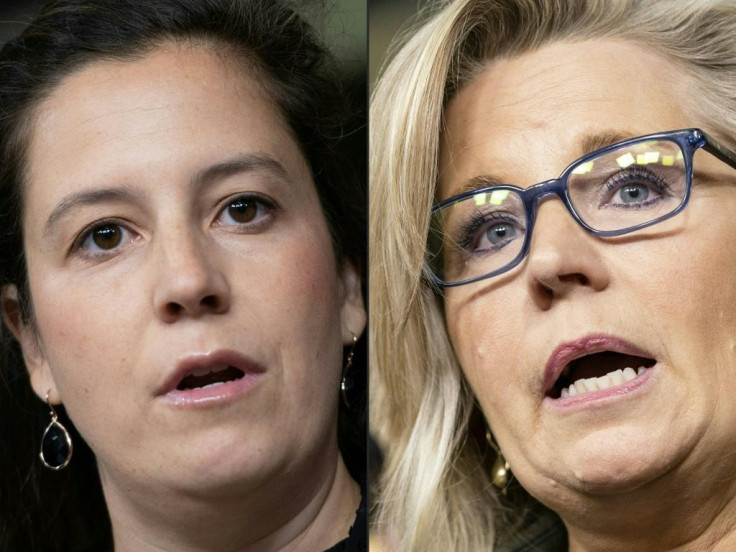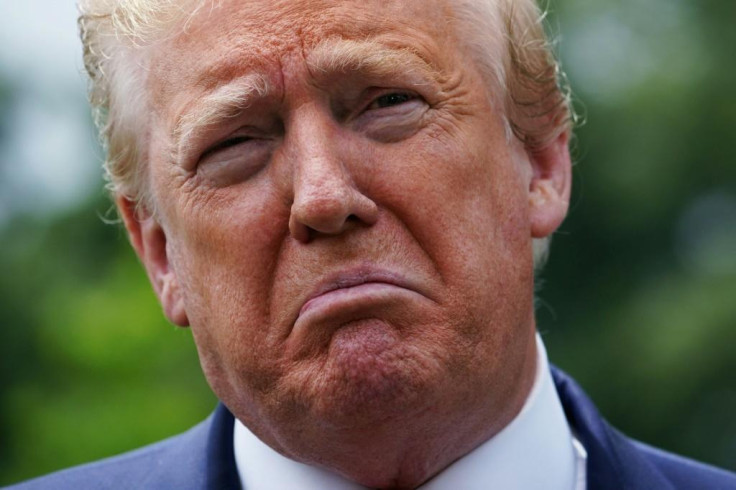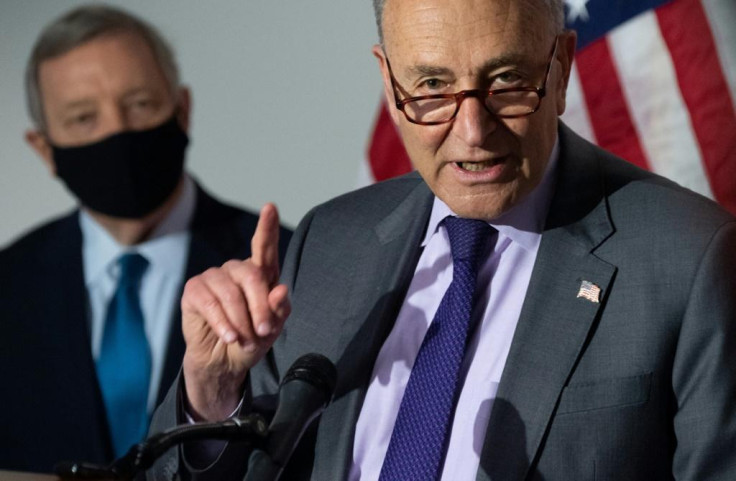Republicans oust Trump critic Cheney from leadership
Republican Senator Lindsey Graham in February hailed Cheney as a principled conservative voice in the GOP.
US House Republicans on Wednesday ousted conservative Liz Cheney, a fierce critic of Donald Trump, from her powerful leadership role in a move that tightens the former president's grip on the party.
Eighteen months before crucial midterms and three years before the next presidential race, the Republican Party punished one of its own for her refusal to embrace Trump's false claim that Democrats stole the 2020 election.
Cheney, daughter of former vice president Dick Cheney, remains a member of Congress. But a swift, closed-door voice vote to remove her as the number three House Republican offered her up as the latest political sacrifice in the GOP's alignment with Trump.

The Wyoming lawmaker told reporters afterwards she would continue fighting for conservative principles and against the embrace of a one-term leader who keeps spreading voter fraud falsehoods.
"We cannot be dragged backwards by the very dangerous lies of the former president," Cheney said.
"We must go forward based on truth. We cannot both embrace the big lie and embrace the Constitution."

The 54-year-old also stood firm against the prospect of Trump running again in 2024.
"I will do everything I can to ensure that the former president never again gets anywhere near the Oval Office," she said.
Trump punched back in a typically abrasive, personal attack.
"Liz Cheney is a bitter, horrible human being," he said in a statement after her ouster.

"She has no personality or anything good having to do with politics or our Country."
With Republican divisions front and center, President Joe Biden courted bipartisanship Wednesday by hosting his first White House meeting with the four congressional leaders.
Democratic House Speaker Nancy Pelosi and Senate Majority Leader Chuck Schumer, top House Republican Kevin McCarthy and top Senate Republican Mitch McConnell joined Biden and Vice President Kamala Harris for nearly two hours in the Oval Office.

Despite the Republican turmoil, Biden signaled he could still work with McCarthy and negotiate over the White House's massive new infrastructure proposal.
"I came away encouraged," the president said.
"I'm encouraged that there's room to have a compromise on a bipartisan bill that's solid and significant."
Having overseen the purge of a fellow leader, McCarthy emerged from the White House desperate to tamp down the narrative that his party is spreading election fraud falsehoods.
"I don't think anybody is questioning the legitimacy of the presidential election," he said, ignoring Trump and the many Republican lawmakers who regularly raise concerns about the vote's integrity.
"I think that is all over with," McCarthy said. "We're sitting here with the president today."
But the party remained absorbed by the Cheney-Trump schism.
Republican Marjorie Taylor Greene, a congressional disruptor who wore a "Trump Won" mask on the House floor when she was sworn in in January, has long wanted to see Cheney relieved of her leadership duties for not supporting the ex-president.
"It was my second vote to remove her," Greene told AFP, referring to an earlier secret-ballot vote that Cheney survived in February after Cheney voted to impeach Trump for inciting the deadly US Capitol insurrection on January 6.
"I'm just glad the GOP conference caught up."
Trump, McCarthy and number two Steve Scalise have all endorsed a young moderate-turned-Trumpist, Elise Stefanik, as Cheney's replacement.
Stefanik, who opposed certification of results in some swing states that voted for Biden, has no serious competition for the post yet.
But a vote for a new conference chair is not nailed down, as some Republicans worry that Stefanik, while a Trump defender, is insufficiently conservative.
McCarthy and other Republican leaders argue the squabble is about unity ahead of the midterm elections, and that Cheney's public Trump bashing has done nothing to bring a fractured party together following an election that left them sidelined from power.
House Republican Adam Kinzinger who, like Cheney, voted to impeach Trump for inciting the Capitol insurrection, scoffed at the notion that unity -- and not bowing to Trump's voter base -- was the justification for Cheney's forced martyrdom.
"Truth cannot coexist with lies," Kinzinger said. "You cannot unify with that."
Even some onetime supporters of Cheney had grown frustrated with her relentless opposition to Trumpism.
Republican Senator Lindsey Graham in February hailed Cheney as a principled conservative voice in the GOP.
But on Wednesday he offered a new reality: "She has taken a position regarding former president Trump which is out of the mainstream of the Republican Party."
Copyright AFP. All rights reserved.
This article is copyrighted by International Business Times, the business news leader



















